Tom's Guide Verdict
The RedMagic 7S Pro is almost identical to the previous RedMagic 7 Pro, but with a more powerful chipset. The device remains a great pick for mobile gamers who don't want to spend too much on a gaming-focused handset though, as long as you don't mind the weak cameras or strangely-worded UI elements.
Pros
- +
Large screen with under-display camera
- +
Powerful performance
- +
Clever gaming features
- +
Low base price
Cons
- -
Few improvements from the RedMagic 7 Pro
- -
Weak photography
- -
Poorly translated software
Why you can trust Tom's Guide
Starting price: TBC
Display: 6.8-inch FHD AMOLED (1080 x 2400)
Refresh rate: 120Hz
Chipset: Snapdragon 8+ Gen 1
RAM:12GB/18GB
Storage: 256GB/512GB
Rear cameras: 64MP main (f/1.79), 8MP ultrawide (f/2.2), 2MP macro (f/2.4)
Front camera: 16MP under-display selfie camera
Battery: 5,000 mAh
Charging: 65W wired
Software: Android 12 with RedMagic OS 5.5
Size: 6.5 x 3.0 x 0.39 inches (166.27 x 77.1 x 9.98mm)
Weight: 8.2 ounces (235g)
The RedMagic 7S Pro is the third device released by Chinese gaming phone maker RedMagic this year, and as a result, it's not that much different from the company’s last two handsets. But what it lacks in novelty, the RedMagic 7S Pro makes up for in the company's usual way — an excellent ratio of price to power.
To make the 7S Pro, RedMagic added a Snapdragon 8 Plus Gen 1 chip to its established combo of physical fan cooling, capacitive triggers, and a big screen with an under-display camera. While it's good that these things haven't changed, the fact the software is still written in dodgy English and the cameras remain sub-par is less appealing. Refinements to these seem permanently just out of reach for RedMagic, and are two big reasons why you may want to avoid this phone.
This doesn't feel like a phone anyone has to buy right now since we'll likely get another round of RedMagic phones in just a few months. However, this is now the best gaming phone RedMagic sells and your best option if you want a gaming-focussed phone for a reasonable price sooner rather than later.
Read on for our more detailed analysis in this RedMagic 7S Pro review.
RedMagic 7S Pro review: Price and availability
RedMagic is selling the 7S Pro via its website and Amazon, both in the U.S. and U.K. Pre-orders are open from 2 - 8 August, and the final retail release is August 9.
The base model costs £669, and gets you 12GB RAM and 256GB storage, while the upgraded version sets you back £809 for 18GB RAM and 512GB storage.
By way of comparison, the RedMagic 7 Pro cost $799/£679, so there's actually been a small price drop since the last generation. The ROG Phone 6 Pro, another gaming phone powered by the Snapdragon 8 Gen 1, starts at $999/£1,099, so the RedMagic 7S Pro offers something of a price break.
RedMagic 7S Pro review: Display
RedMagic equipped the 7S Pro with a 6.8-inch AMOLED screen with FHD resolution and no punch-hole or notch ruining the view thanks to an under-display camera. The patch of display hiding the camera is a bit more obvious than it is on the RedMagic's sibling phone the ZTE Axon 40 Ultra, but you hardly notice the difference in pixels when using the gaming phone.
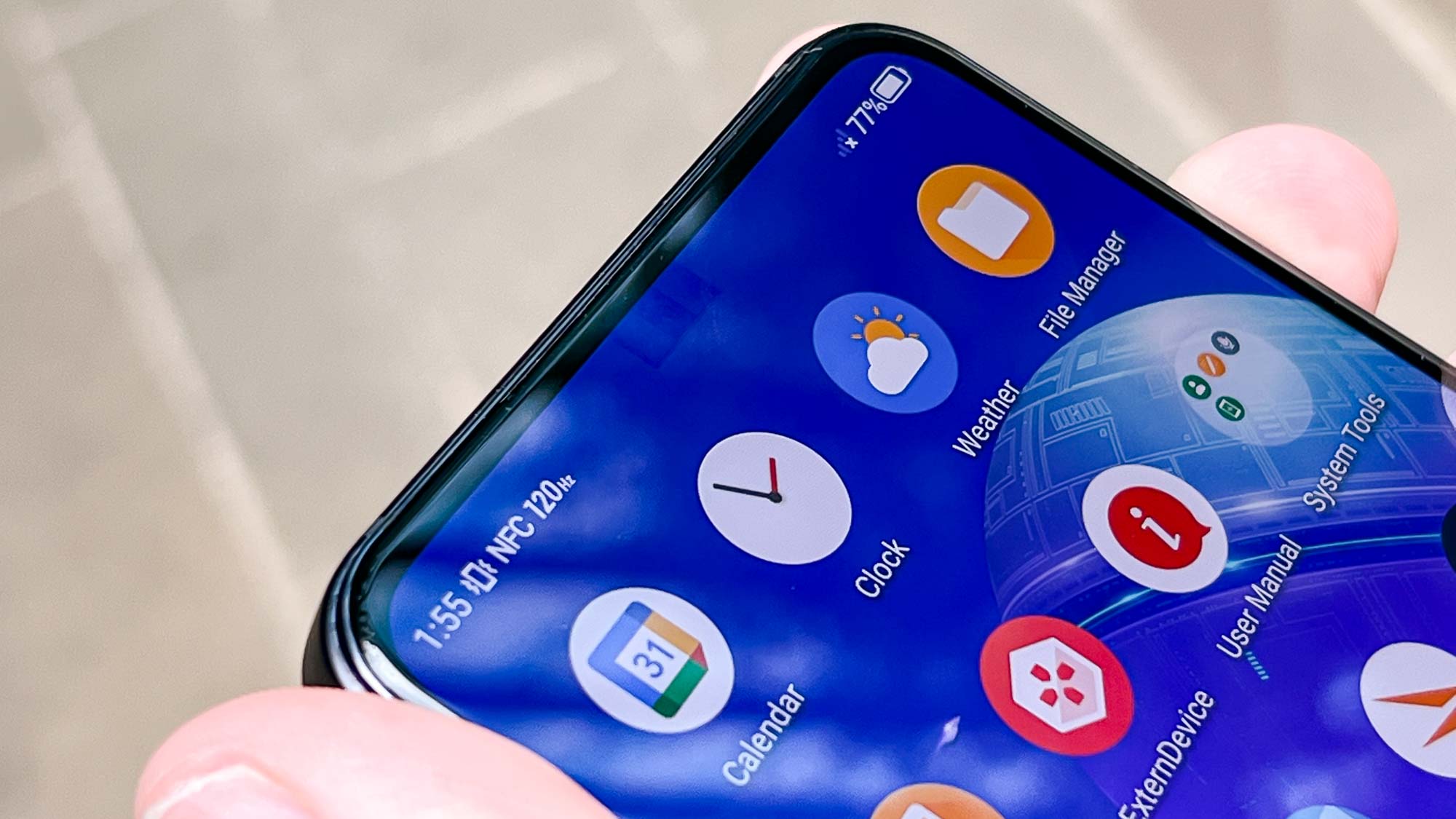
Watching the Stranger Things 4 Volume 2 trailer on YouTube, I could easily make out the action and detail, no matter which side of the gates the main cast was on. The RedMagic's default color profile is a little colder than what you get on the Galaxy S22 Ultra though, which made the Upside-Down and other locations look extra unwelcoming.
As the numbers from our display testing show, the RedMagic has a dimmer display than its rivals, but an impressive Delta-E score for color accuracy, where a lower score means more accurate color reproduction.
| Row 0 - Cell 0 | RedMagic 7S Pro | ROG Phone 6 Pro | Black Shark 5 Pro | iPhone 13 Pro Max |
| Display size | 6.8 inches | 6.8 inches | 6.7 inches | 6.7 inches |
| sRGB (%) | 183 (Default)/105 (Natural) | 165 (Optimal) / 192 (Natural) | 152 (Saturated) / 110 (Natural) | 109 |
| DCI-P3 (%) | 129 (Default)/ 74 (Natural) | 117 (Optimal) / 137 (Natural) | 108 (Saturated) / 78 (Natural) | 77 |
| Delta-E | 0.31 (Default)/0.19 (Natural) | 0.37 (Optimal) / 0.33 (Natural) | 0.34 (Saturated) / 0.21 (Natural) | 0.21 |
| Peak brightness (nits) | 606 | 762 | 615 | 1,038 |
RedMagic 7S Pro review: Performance
Processing power is just as important for a gaming phone as a good display, and fortunately, the RedMagic has as much oomph as you'll find on any of the best Android phones right now. It uses the latest Snapdragon 8 Plus Gen 1 chipset, and either 12GB or 18GB RAM to provide plenty of memory capacity.
Even in the 12GB form that we tested, the RedMagic performs well against rival gaming phones such as the Asus ROG Phone 6 and the Black Shark Pro 5.
| Row 0 - Cell 0 | RedMagic 7S Pro | Asus ROG Phone 6 Pro | Black Shark 5 Pro | iPhone 13 Pro Max |
| Geekbench 5 (single core/multi-core) | 1331/4230 | 1316 / 4197 | 1226 / 3671 | 1720 / 4549 |
| 3DMark Wild Life (FPS) | 66 | 66 | 61 | 68 |
| 3DMark Wild Life Extreme (FPS) | 17 | 16 | 15 | 15 |
| Adobe Premiere Rush (mins:secs) | 0:46 | N/A | 0:49 | 0:25 |
Like the ROG Phone 6 Pro, the RedMagic outperforms even the almighty iPhone 13 Pro Max on the Wild Life Extreme graphics benchmark test from 3DMark. However, no Android phone, not even the RedMagic, has been able to unseat the iPhone from its throne when it comes to overall performance or our custom video-processing test, in which we have phones transcode a 4K video clip and time the results.
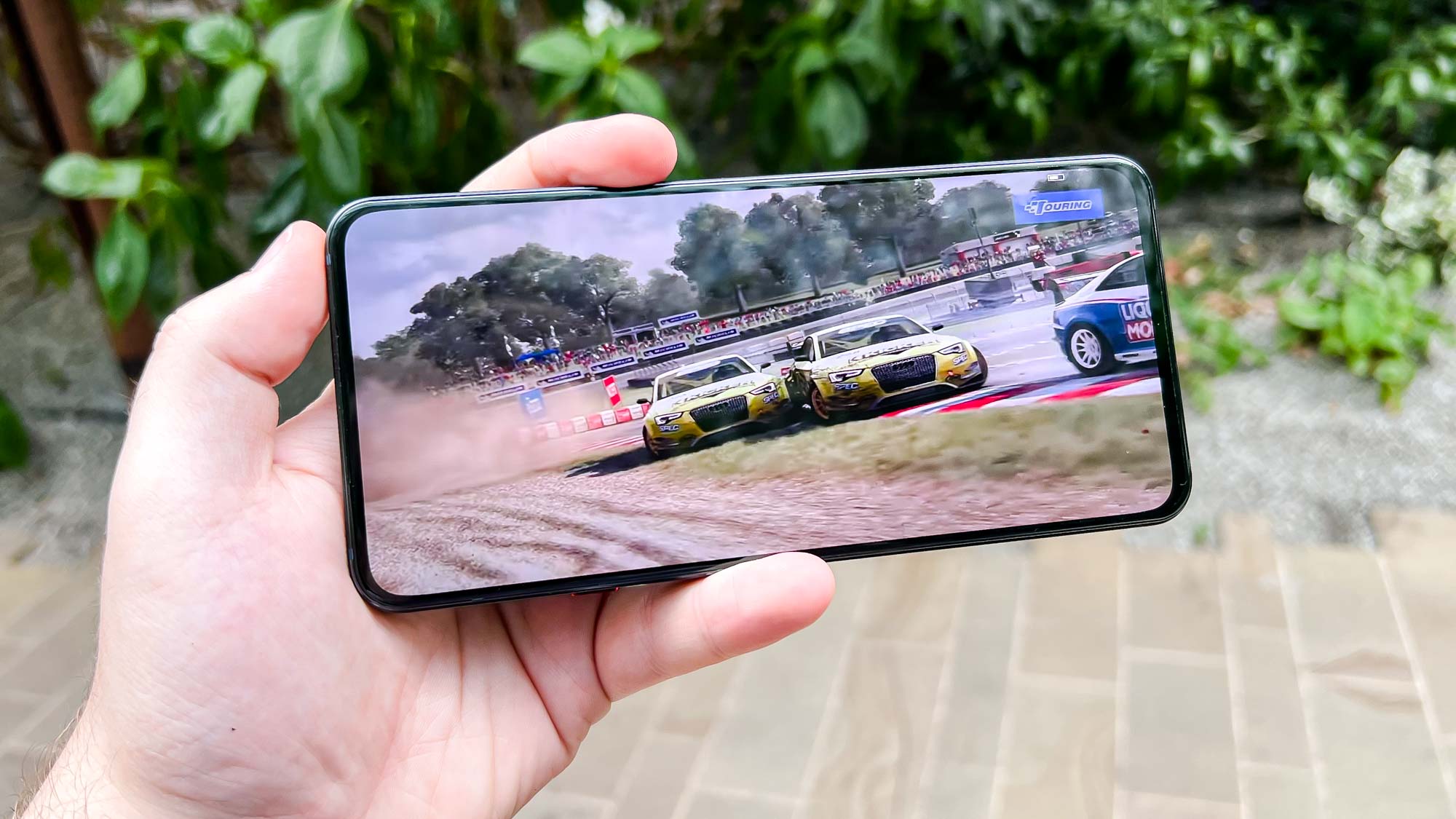
In a more typical test of the RedMagic's abilities, I raced a few laps in Grid: Autosport, and was thoroughly impressed. At max graphics settings, with the sunlight glinting off of the roof of my bright yellow touring car and mud sprayed on the fenders, the game ran perfectly smooth, and even the furthest details of the stands around the finish line looked sharp. As you'd hope, this gaming phone plays games very well.
RedMagic 7S Pro review: Charging and battery life
As with the Red Magic 7 Pro, the sequel sports a 5,000 mAh battery, which should make for impressive battery life. In our testing, we found the phone lasted 10 hours and 48 minutes on our custom TG battery test when set to its maximum 120Hz refresh rate, and as high as 12 hours and 48 minutes when locked to a basic 60Hz. That's high enough to land it a spot among our best phone battery life champions, but it doesn't quite beat the amazing 15-hour-plus result managed by the ROG Phone 6 Pro.
The RedMagic ships with a 65W wired charger in the U.S. and U.K. — a little disappointing since the Chinese version of this phone gets a 135W charger for even quicker refueling. Still, a 65W brick is pretty powerful.
Charging from 1% (with the phone’s cooling fan on), I got to 60% in 15 minutes and 95% in 30 minutes. That puts the RedMagic 7S Pro at almost the top of our fastest charging phones. It takes the Black Shark Pro 5 18 minutes to go from drained to fully charged.
RedMagic 7S Pro review: Other features
A gaming phone is still a smartphone with all the same features and functions as more typical handsets. Here's a quick rundown of some of the RedMagic 7S Pro's other abilities.
Design: The overall design of the RedMagic 7S Pro hasn't changed that much from the basic RedMagic 7 or 7 Pro. That means a thick handset with a plastic and metal back and thicker-than-average display bezels, but also some welcome touches like a headphone jack and a smooth back with flush-fitted cameras that keep the phone stable when you lay it flat on a table.
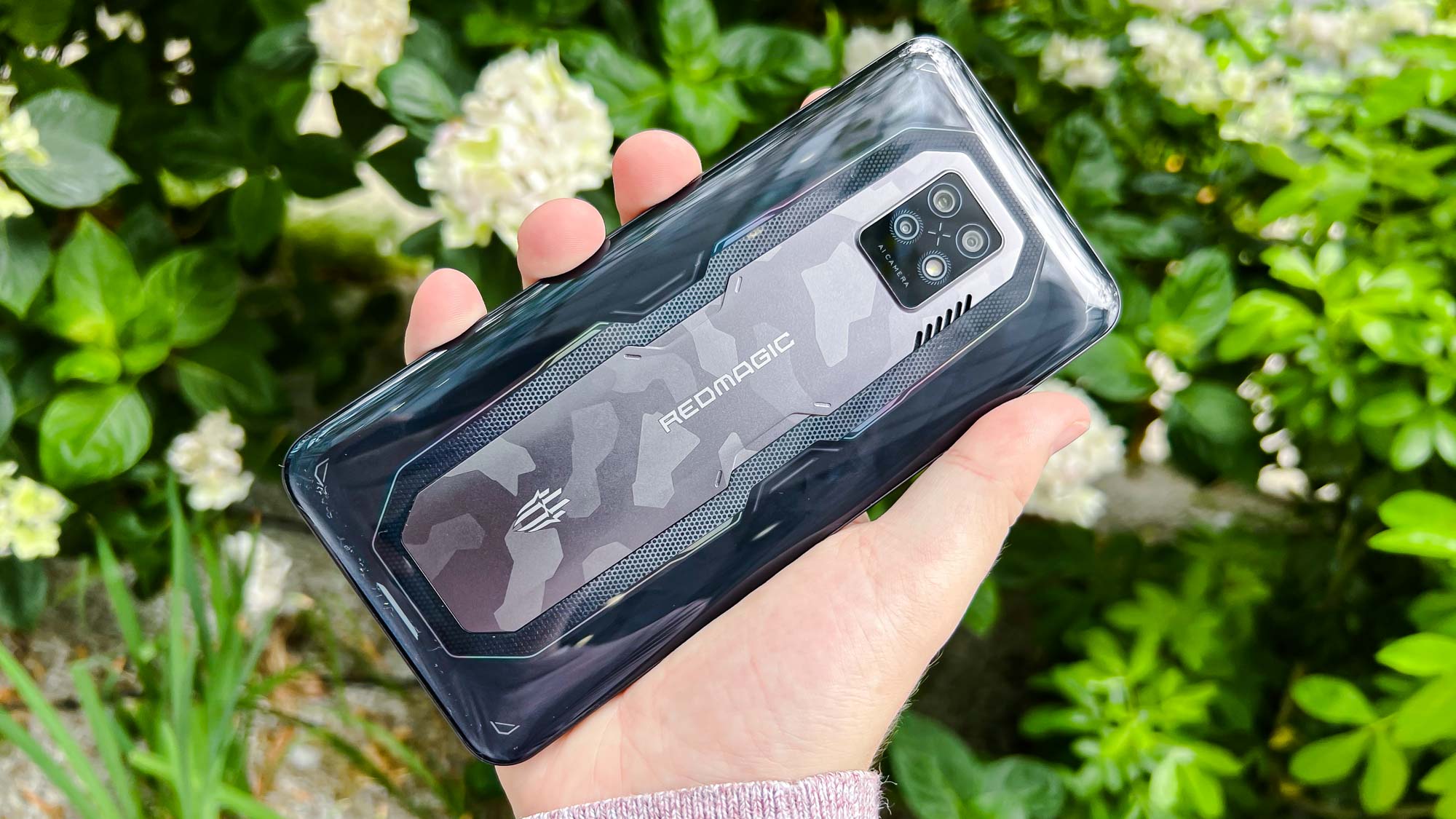
New to the RedMagic 7S Pro is the trio of color options, which include the subtler Obsidian model I've been testing alongside the shiny Mercury and semi-transparent Supernova options we've seen on previous phones. It's a shame that these colors are locked to certain memory capacities.
Software: I feel like a broken record but once again, the RedMagic 7S Pro's Android 12 software, running through RedMagic OS 5.5, comes with menus and pop-ups that look like they've been machine translated from Chinese rather than worked on by fluent English speakers. In some cases, the functions were still listed in Chinese, although I haven't found any evidence of this since the most recent software update.
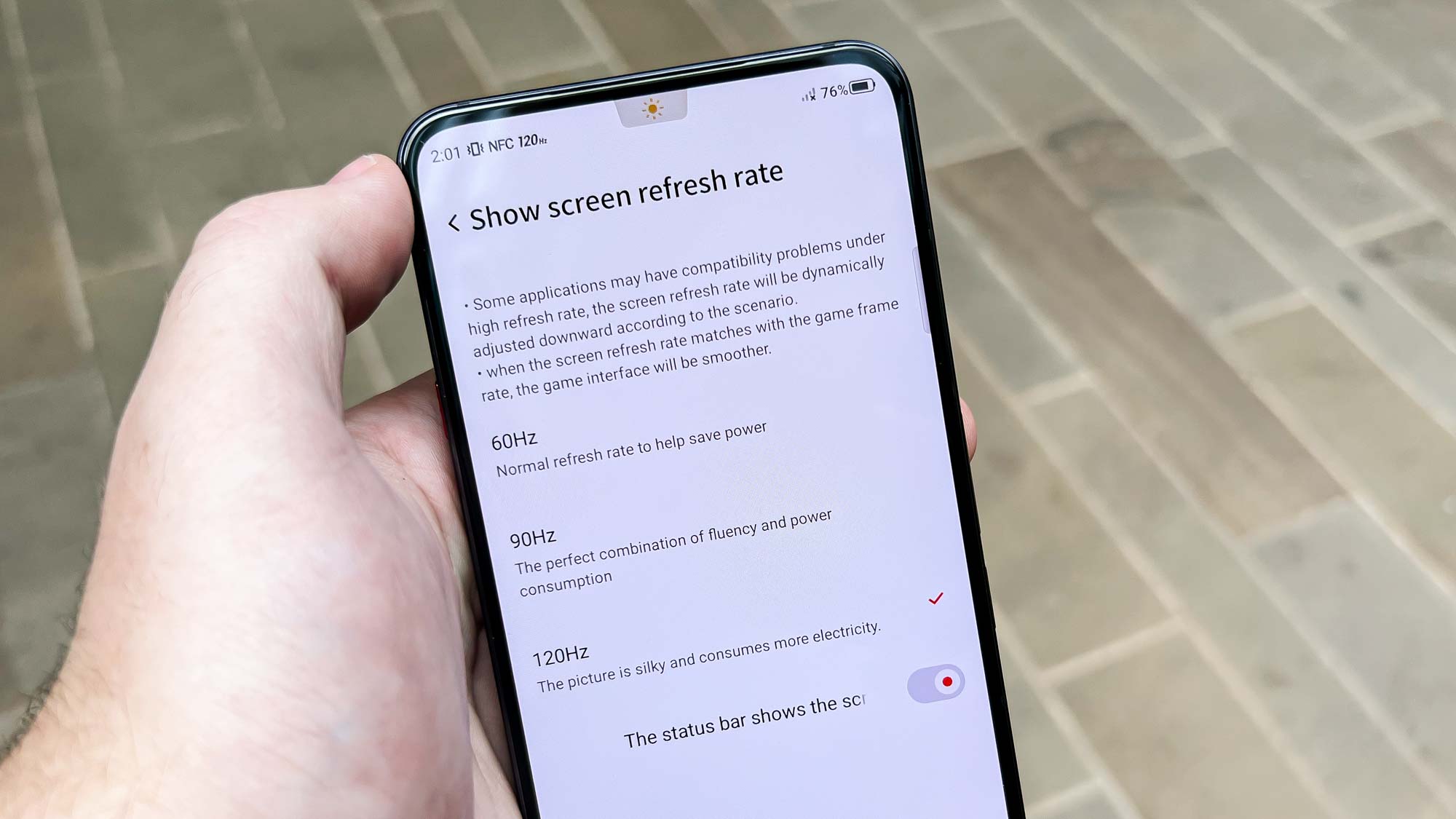
ZTE is one of the rare Chinese phone brands that ships directly to the U.S., so the fact it can't translate its OS properly is unacceptable. The interface is still completely navigable, and I could always figure out what the poorly-translated bits were trying to say thanks to my familiarity with Android, but the Android phone market is competitive, and weirdly-worded menu options could be all it would take to put off a potential buyer.
Cameras: The sensors on the RedMagic 7S Pro haven't changed from previous RedMagic 7 models, so once again we've got a 64MP main camera, 8MP ultrawide camera and 2MP macro camera on the back; a 16MP selfie camera beneath the display completes the camera setup, just as it did on the RedMagic 7 Pro.
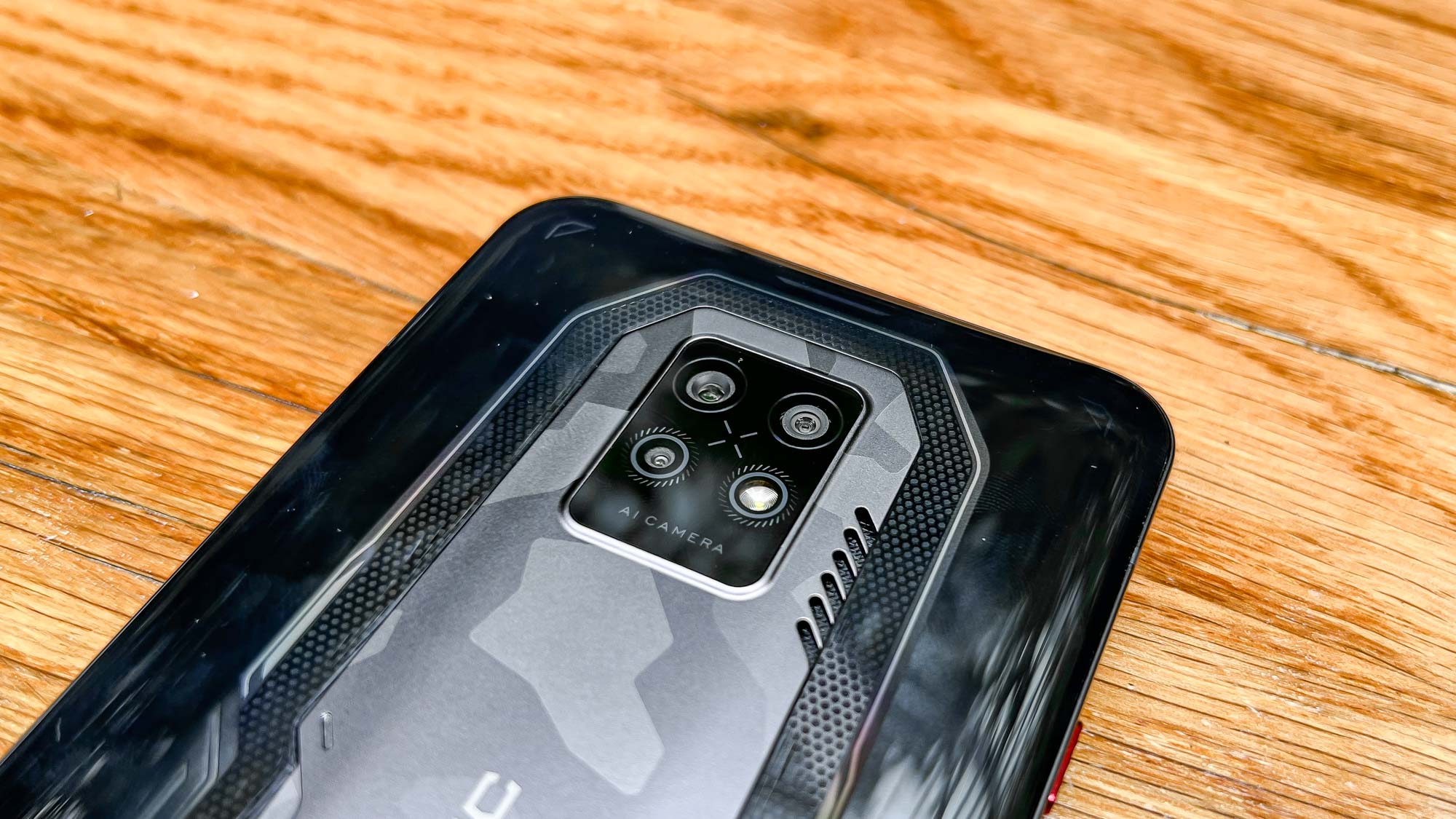
I quite like the main camera shot I got with the RedMagic from a bridge overlooking the Paddington Arm of the Regent's Canal. Its colors are a fairly accurate representation of the cloudy day I took the photos on, and there's lots of detail to enjoy in the 16MP pixel-binned image. The night-mode shot I took of Oxford Circus was okay too, but it's quite noisy if you start to look closely.

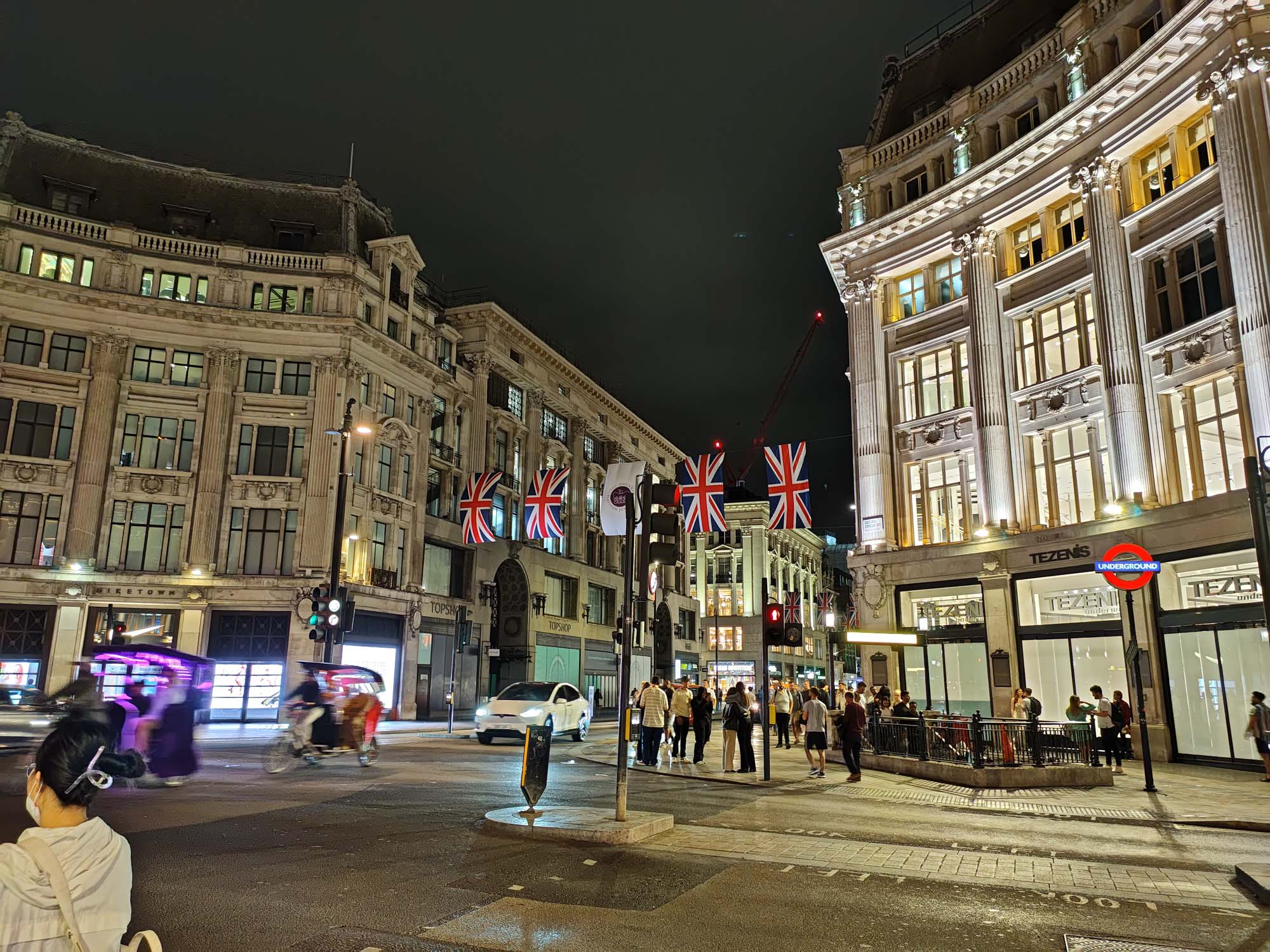
The ultrawide and macro photos taken by the RedMagic 7S Pro are less inspiring. Macro cameras, especially ones as small as the RedMagic's, just can't capture enough detail from their subjects (like this flower) to be worth using over the main camera.

The ultrawide sensor is also a lower resolution than what you typically see on a phone, which makes this colorful canal boat look fuzzy even from a distance.
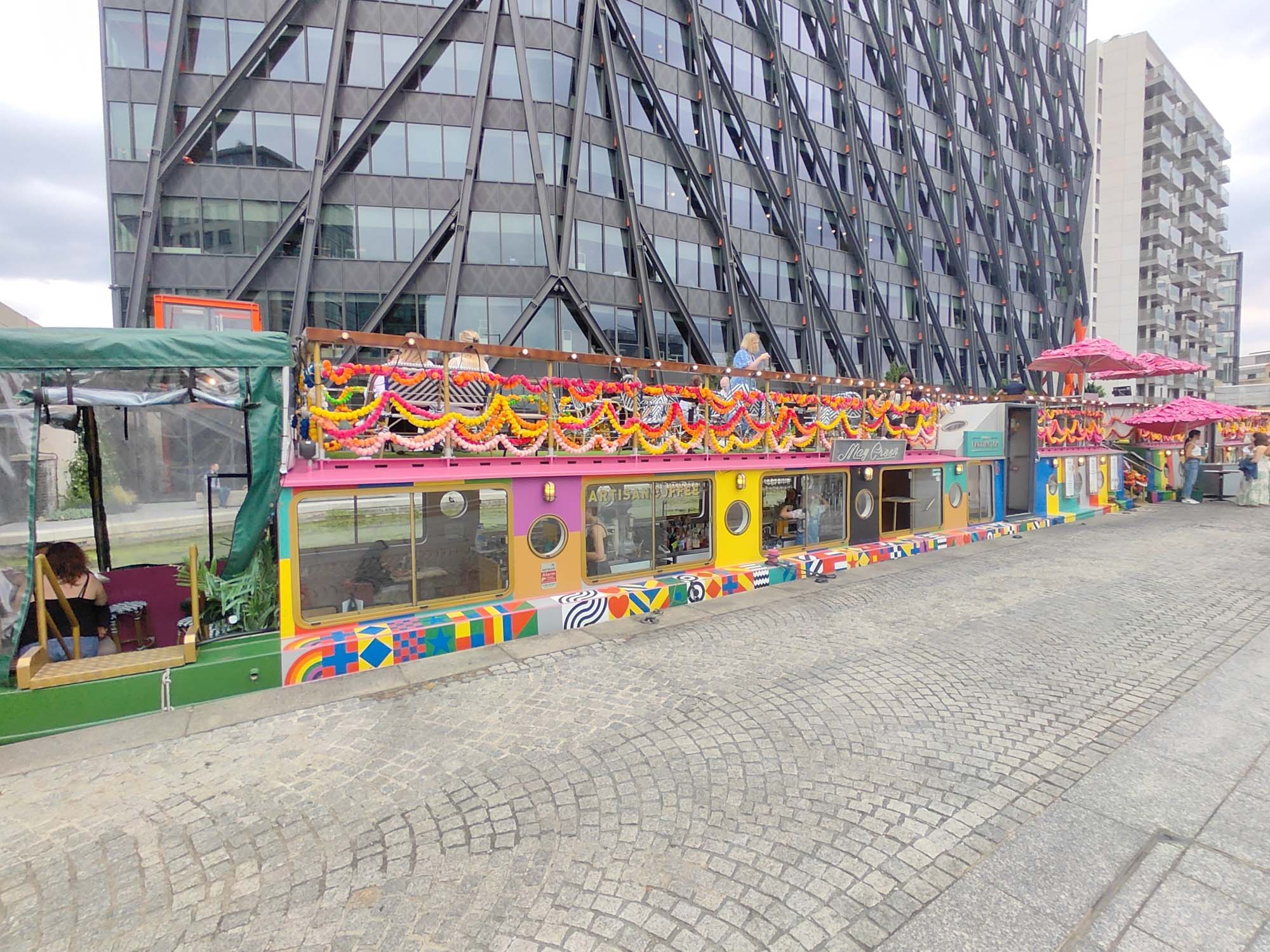
As for the under-display selfie camera, that surprisingly produced an okay image given the phone has to shoot through the display to capture my face. Brightness, color and detail are all adequate (even if the shot is a bit soft-focused).

The worst problem, though, is that there's basically no bokeh on this image, even though I captured it using the phone’s portrait mode feature.
Gaming features: Two main elements of the RedMagic 7S Pro's design will appeal to gamers. The first is its trademark miniature fan that turns on when you start playing games, or you turn on the dedicated slider on the side of the phone.
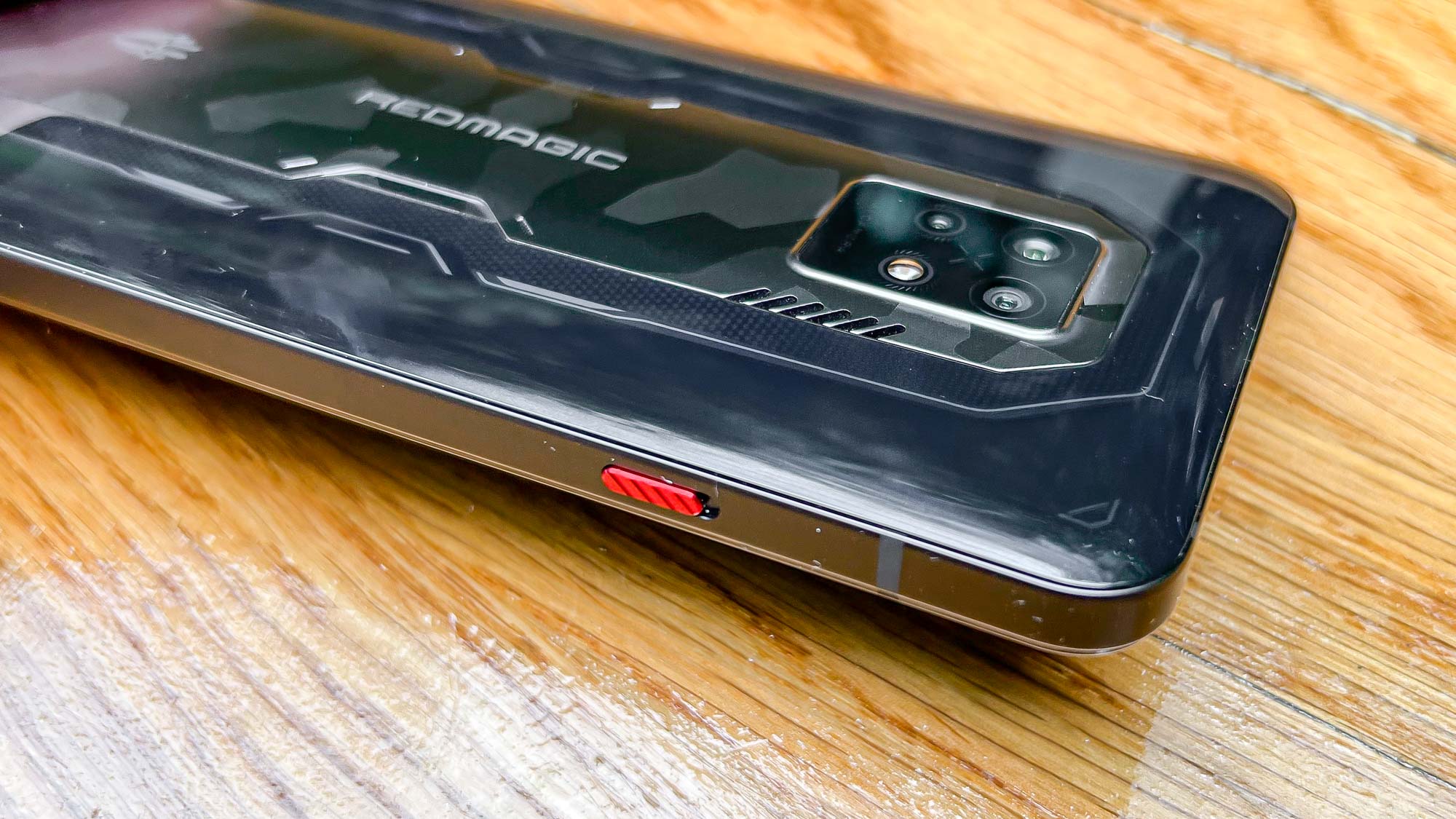
The fan moves a surprising amount of air and does a great job of keeping the phone cool during long play sessions. It's just a shame that the fan is hidden on my review unit, as the more expensive versions of the RedMagic 7S Pro mount their fan in a transparent housing along with RGB lights.
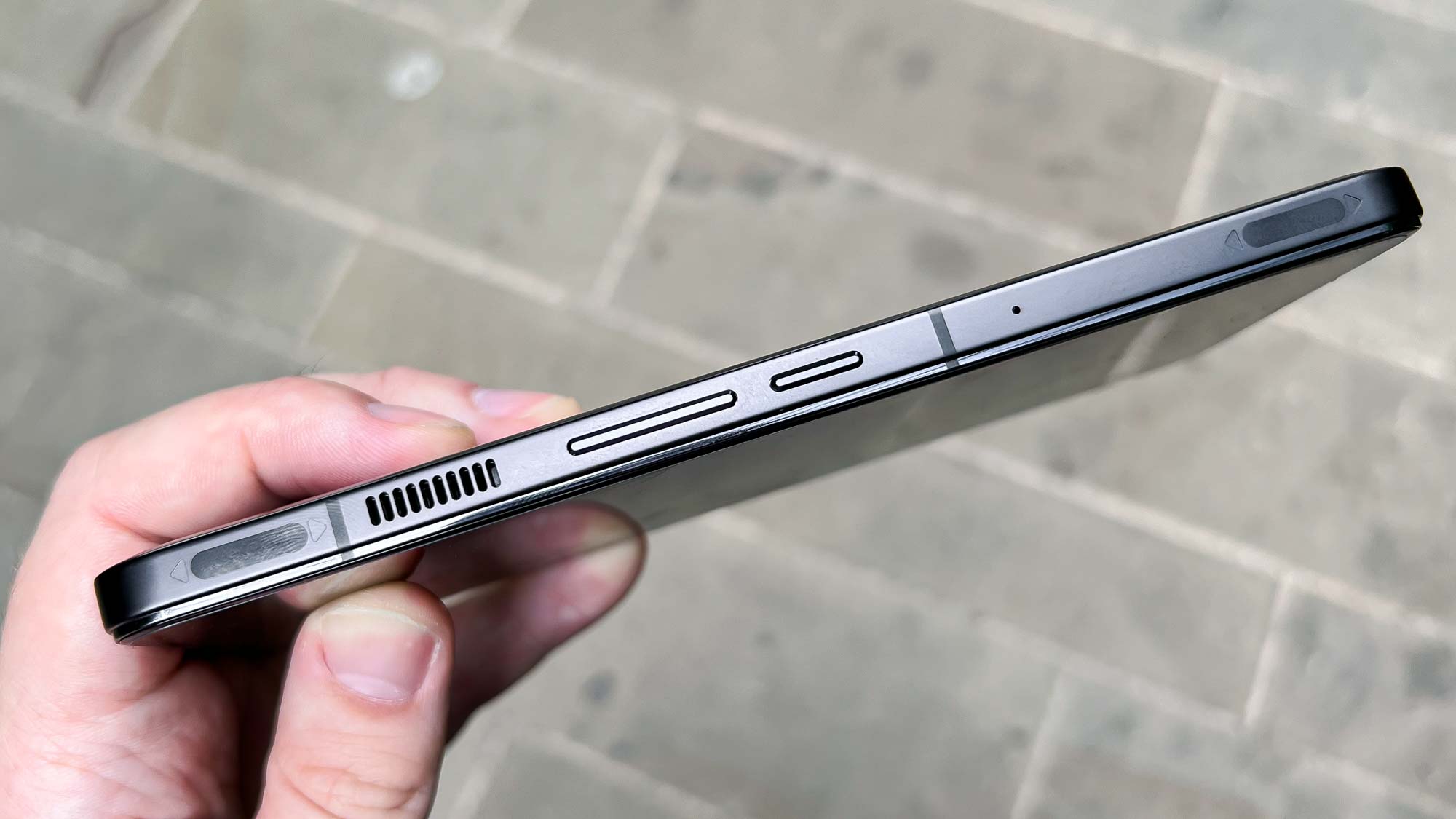
The RedMagic 7S Pro also features two capacitive trigger buttons on the phone's right side. You can set these up to activate a specific area of the screen on a per-game basis, meaning you can use them only when you want to. That’s worth the effort, though, as the trigger buttons make for a far more natural gaming experience if you're used to playing on a gamepad.
RedMagic 7S Pro review: Verdict
With only a handful of upgrades since the previous model, the RedMagic 7S Pro stands out and falls down in the same areas as the RedMagic 7 Pro and the RedMagic 7. It's still a bargain buy if you want the most power possible on an Android phone, and its gaming optimizations can prove genuinely useful. Premium touches like 65W charging, an under-display camera and a huge 120Hz display round out the phone, making it tempting even for users who aren’t bothered by the gaming side of the phone.
However, just as before, this is a chunky phone that lacks camera and software polish, two critical weaknesses in the current smartphone market. A confident Android user who wants top-tier silicon but isn’t fussed about smartphone photography is, therefore, the ideal user for this phone, but any Android buyer who prioritizes value for money and mobile gaming should put this model on their shortlist. Just don’t be upset if RedMagic releases another slightly improved model again soon.

Richard is based in London, covering news, reviews and how-tos for phones, tablets, gaming, and whatever else people need advice on. Following on from his MA in Magazine Journalism at the University of Sheffield, he's also written for WIRED U.K., The Register and Creative Bloq. When not at work, he's likely thinking about how to brew the perfect cup of specialty coffee.

